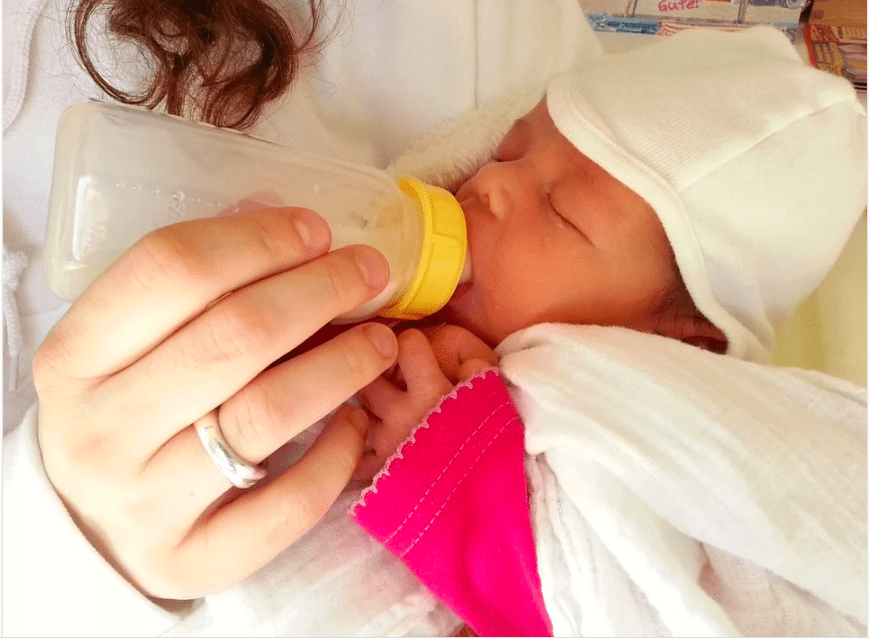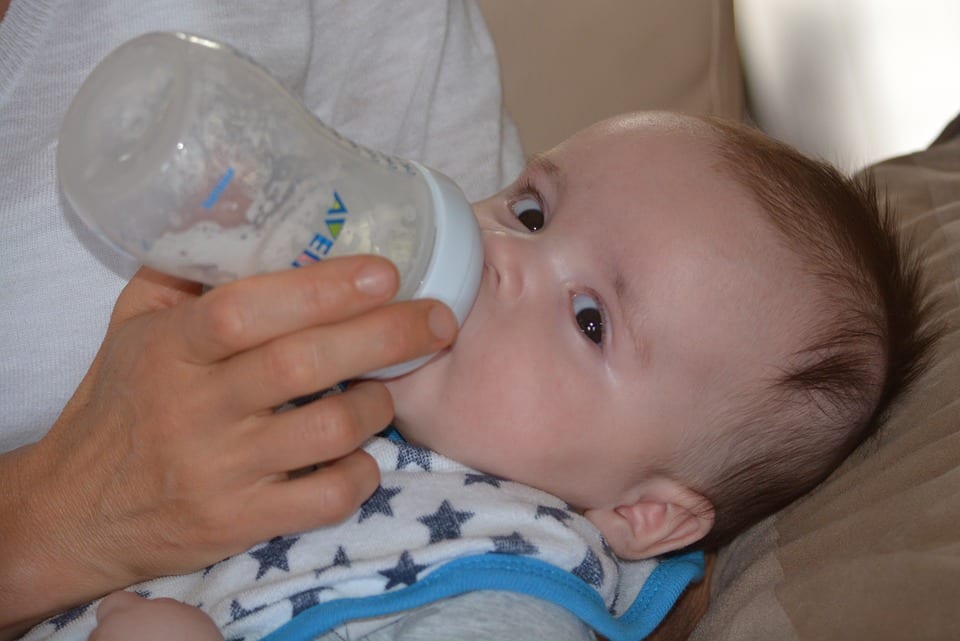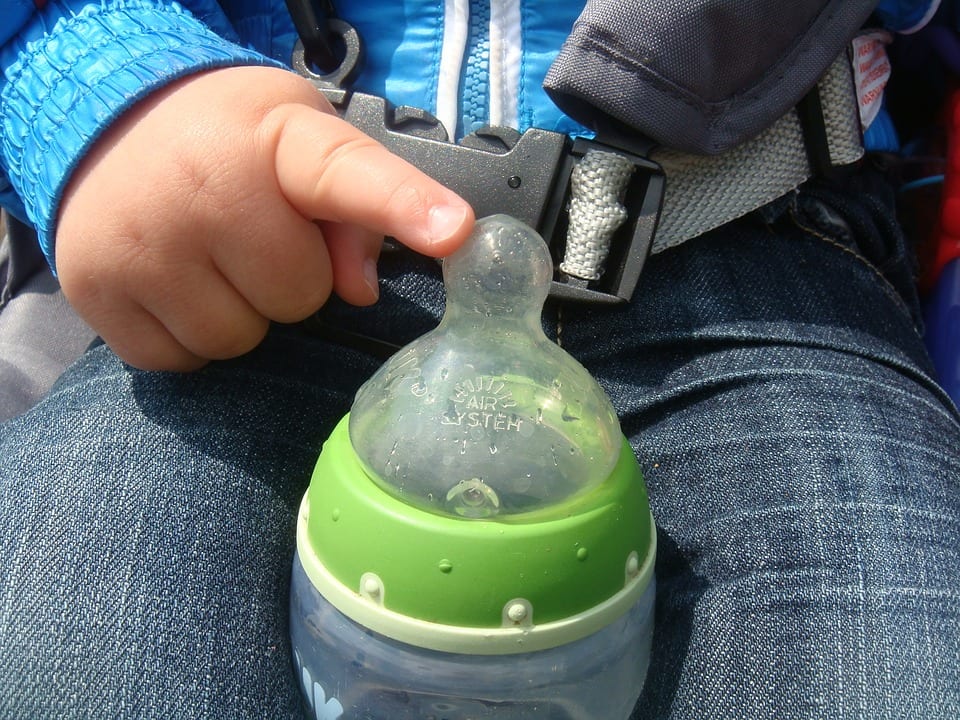Listen. I nursed both of my boys, the first for a year (exclusively for 10 months) and the second until 9 months (he was a biter that would not be stopped). I enjoyed it, it worked for us, and I’m glad.
That said, even if breast may “be best,” I have absolutely no judgment for mothers who can’t or choose not to breastfeed their babies. It’s a huge time commitment, it’s uncomfortable at first, there are times when it’s confusing or painful and yeah, there’s a downside to being the only one who can feed the baby.

Image Credit: Pixabay
And of course, there are non-biological mothers or mothers who don’t produce or mothers who have had mastectomies…the list goes on and on, and here’s the thing. There’s a ton of advice out there for moms who choose to nurse their newborns. Like, probably too much.
But nowadays, choosing to formula feed from the beginning is so taboo that many who go that route feel like they need to do so in secret. Which is not the way to a happy parent, let me tell you. It really does take a village.
So, here are some quick answers for moms who aren’t breastfeeding. Fistbump on making and feeding that human, girl!
#4. Should you try to use someone else’s breast milk?
You can, but make sure you go through proper channels.
Outside of premature babies, who seem to have lower complication risks when fed human milk, milk banks are the way to go.
The milk is regulated and processed, and donors are carefully screened.
#3. Yes, you can choose to do a little of both.

Image Credit: Pixabay
People who are really, REALLY INTO breastfeeding will try to convince you that giving your baby formula from a bottle some of the time will ruin them from nursing and breastmilk forever. This is not true, and also the idea can be dangerous.
Babies need to stay hydrated, moms need to rest, and some of us don’t have a great supply. There has been more than one study (like this one and this one) that show (if done correctly) supplementing does affect breastfeeding at all, or even increases (see here and here) the chance of breastfeeding in the long term.
My cousins gave their babies formula for their 10pm feeding every night so they would sleep longer. You do you.
#2. Yes, you can stop whenever you want.
Just because you started out nursing doesn’t mean you have to continue to six months, a year, or beyond. Stop when you feel like you want to stop, just make sure to invest time in a gradual shift from breastmilk to formula if you can.
This is for your comfort as much as your baby’s – I found that swapping out one feeding, waiting three or four days, swapping another, and so on was the way to go.
#1. Do you need to invest in the fancy European formula?

Image Credit: Pixabay
Some Americans will buy anything if Europe says it’s better, and lately the idea that European formula is healthier because it contains fewer ingredients and a different type of sugar, possibly reducing obesity risks down the road.
It costs a ton, you have to buy it online, and because it’s unregulated by the FDA, it’s sort of frowned-upon by the government, too.
An academic paper from 2019 suggests that it’s definitely not worth any of the risks. Also, they contain most of the same vitamins, minerals, and nutrient content as U.S. versions – though the States formulas do contain more iron. The lactose in place of corn syrup argument is unsubstantiated by science.
So just buy one your baby likes, and that has an appropriate mixture of fats, carbs, and proteins along with other nutrients. And pray your little one doesn’t have a sensitive tummy that forces you to shell out more than $40 a container.
There you go, mamas. Do what’s right for you and your wee one and you can’t go wrong.
Go out there and support each other, yeah? It’s always the right thing to do!
